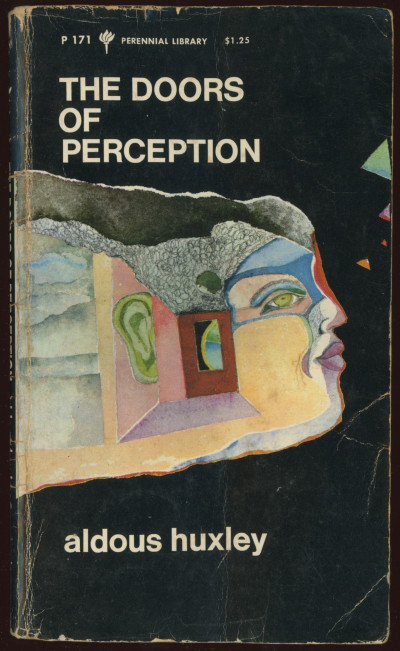It may seem like I’ve strayed off here but this is a continuation of several glances at the presupposition that some of us have the creative spark and some of us don’t.
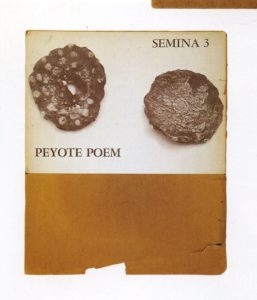 I’ll be approaching the angle of “I’m not high enough to be creative” in a tip-toe fashion. Can you blame me? This could easily get all misconstrued and lead to accusations of condoning the illicit. All I want to do here is explore the connection between getting high and getting creative because it cannot be ignored as a presence in the creative realm. And like everything else I’ve written, I’m not ever going for a final analysis or ad hoc conclusion. I just want to gently peel apart the dense information molecules so we can pass through them.
I’ll be approaching the angle of “I’m not high enough to be creative” in a tip-toe fashion. Can you blame me? This could easily get all misconstrued and lead to accusations of condoning the illicit. All I want to do here is explore the connection between getting high and getting creative because it cannot be ignored as a presence in the creative realm. And like everything else I’ve written, I’m not ever going for a final analysis or ad hoc conclusion. I just want to gently peel apart the dense information molecules so we can pass through them.
You may have noticed that the thread I am most curious about is this one involving the hindrances imposed on us by a certain verbal thinking process that includes doubt, expectations and trying to come up with ideas. It’s like this type of thinking (that includes ego related stuff) keeps us in the static between radio stations (i.e. creative channels). As I’ve been saying, cobbling our unique creative process to bypass our restrictive (static bound) brainwaves could take a fair bit of time, attentiveness and unlearning. Our own willpower gets in the way. And who thinks they have extra time and attentiveness, right? This is where I think the curious lure of substance assistance comes in.
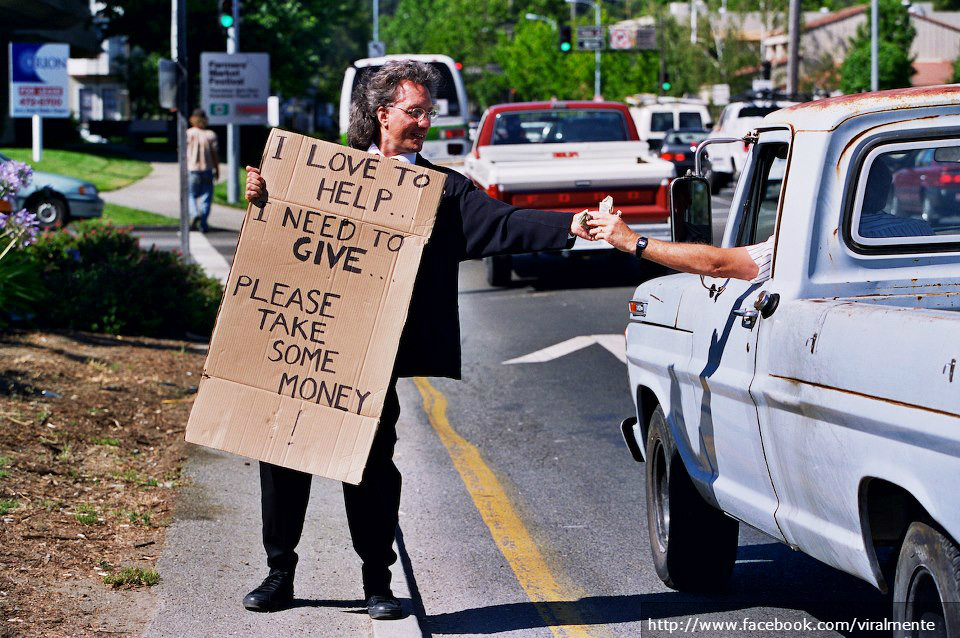
Rob Brezsny out performing a different perspective.
Rob Brezsny is an American poet and the author of freewill astrology. In his account of becoming a horoscope writer, Brezsny describes some of the difficulty involved in dropping some of the limiting patterns attached to creative expression: “I was perfectly willing for poetry to be demanding, complex, subtle, and even maddeningly mysterious. The whole point was to dynamite the ruts cut by ordinary waking consciousness, to sabotage cliche and common sense, to reinvent the language. But why did so much of this noble effort have to be uniformly listless, pretentious, and inaccessible?”
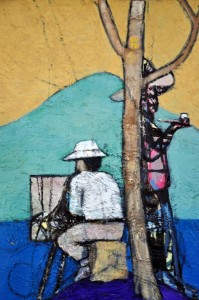
Carlos Castaneda and Don Juan Matus by Mr. D Boyd B
He goes on to talk about some of his personal experience with dreams and meditation as potential modes to access more expansive states of consciousness (I realize that I still haven’t gotten into any particulars about some possible paths to the creative space and I’m intentionally saving that for other posts). But he eventually admits to turning to a certain form of assistance: “The problem was that unlike the other techniques on the list, psychedelics bypassed my willpower. Their chemical battering ram simply smashed through the doors of perception. No adroitness or craft was involved on my part. One of my meditation teachers referred to drug use, no matter how responsible, as “storming the kingdom of heaven through violence.”
This opens up a few contradictions. First, let’s just say that certain substances have properties that open certain creative channels. It’s pretty curious that these things are available to us in nature and have been used by humans for thousands of years. We could immediately jump to an image of a broken life of addiction or incarceration, but I’d like to point out that we don’t often associate legit shamans or healers (who guide spirit quests with psychedelics and such) with those things. Also, if you start Googling geniuses and their drug of choice, you may or may not be surprised. On the other hand, it’s pretty easy to find examples of artists and scientists who have been damaged or utterly destroyed by a drug that they may have, at one point, claimed put them in touch with their creative jam. So do these substances assist or thwart the creative process? What of cultures, and the many healers, (meditation teachers, as in Brezsny’s account) and artists that manage vision, spiritual or creative quests without any huffing, ingesting or injecting?
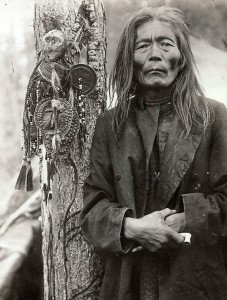
Evenk (Russian minority) shaman with a collection of shamanic objects, including images of helper spirits, early 1900s.
The only thing we can assume here is that there is no simple or certain answer. Does it seem as though particular substances can open a creative space by helping bypass our limiting perception? If so, are they meant to be an introduction to an expanded awareness? Do they have the potential to become a dangerous and destructive crutch? Are there complications around the use and abuse of these substances? Is it possible to get into the creative zone without such assistance?
This is as far as I’m willing to go with this. As it so happens, my particular path to the creative field has not and currently does not depend on any drug so I can’t go on from any real personal experience. I’m not saying I haven’t dabbled, it’s just that that type of research hasn’t done it for me. I guess it’s possible I’ve taken the long way around to my creative channels but it’s been a pretty incredible trip; I mean, it’s my way and, thankfully, I still haven’t got it all sorted out.
“A path is only a path, and there is no affront, to oneself or to others, in dropping it if that is what your heart tells you . . . Look at every path closely and deliberately… Then ask yourself alone, one question. Does this path have a heart? If it does, the path is good; if it doesn’t it is of no use.”
-DON JUAN MATUS
